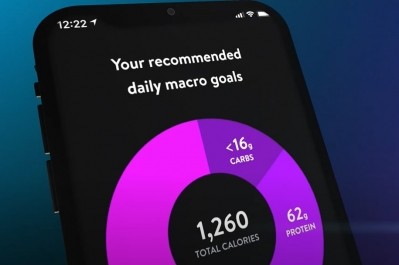Mental wellbeing ranks top of health concerns in global consumer survey

In a recent Euromonitor International webinar, the firm’s analysts reveal the results of global consumer surveys looking into how the pandemic has impacted consumer perceptions and purchasing habits relating to health, nutrition, and supplements.
Matt Oster, head of consumer health at Euromonitor, points out that in the firm’s COVID-19 voice of the industry survey (April/July/Oct 2020), consumers were asked how they think shopping and spending habits will change as a result of the pandemic. The consensus view was that interest in health and wellness related products – of which vitamins and supplements are amongst the most prominent - will have considerable staying power.
“I think this expectation is intuitive and I think OTC companies should take note,” says Oster. “COVID has marked an incomparable impression on consumer behaviour so many of the tendencies bought out by COVID will likely remain for the short term at least.
"Among these tendencies are the shift towards prevention and immunity focused products and the longer focus remains on immunity in 2021, the more likely it is these will remain a permanent interest in the future.”
Euromonitor’s recent health and nutrition survey, conducted in Jan and Feb 2021, saw across the board jumps in reported usage of these products, says Oster.
Overall, 31% of consumers claimed they use vitamins and dietary supplements products daily or almost every day in 2021, compared to 26% in 2020 pre-pandemic, and 24% in 2019. The countries which saw the biggest jumps in the number of users were the UK (41%, up from 33%) and the US (53%, up from 45%).
“These numbers suggest consumers will continue to prioritise supplementation as a critical component of healthy lifestyles and disease prevention,” Oster says.
Trusted information sources
The pandemic also impacted where people were able to get information from and, as such, the survey reveals a shift in the trust consumers will place in digital information sources.
In 2020 and 2021, Euromonitor asked consumers to rank various health information sources in terms of their trustworthiness and found that while health experts remained in the top three spots across both years, ‘friends and family’ and 'fitness trainer or coach' dropped down the rankings, presumably because consumers were less likely to use these sources during lockdown.
Whereas ‘virtual doctor’ climbed from 9th to 6th place and the pharmaceutical industry and healthcare related websites were both ranked higher in 2021 as consumers became more comfortable with using the internet to learn about health. In fact, 42% of respondents said they were ‘very’ or ‘extremely’ comfortable to consult a therapist online or via an app in 2021.
Oster says consumer interest and engagement with digital health solutions is a big opportunity for health and nutrition companies and it will inevitably lead to more investments and acquisitions in this space.
What does ‘being healthy’ mean to consumers?
When consumers were asked what ‘being healthy’ means to them, ‘mental wellbeing’ came out as the top concern (64% of respondents chose it), closely followed by ‘having a healthy immune system’ (63%). 'Feeling good' was chosen by 59%, as was ‘getting enough sleep'.
'Absence of disease' was chosen by 57% of respondents, 55% chose 'emotional wellbeing', and 55% chose 'maintaining a healthy weight'.
These choices are in-keeping with the largely reported increasing demand for 'holistic health'. Stress is a factor that consumers across the globe have rated as a critical concern and Euromonitor’s survey reveals that 57% of global respondents suffer with at least ‘moderate’ levels of stress.
Oster says this is being met with a rise in number of respondents who are dissatisfied with products for stress reduction, suggesting an opportunity for innovation.
Health concerns in 2020 and 2021 show that concerns for a huge range of issues have grown. There’s been a particular jump in concerns around eye health, stress and anxiety, and sleeping problems, most likely due to the lockdowns people spending more time at home.
Perhaps more surprisingly, there’s also been a jump in the number of consumers concerned about joint and muscle pain, headaches and allergy care.
Oster explains: “I think the link here is that consumers don’t want to manifest symptoms that they could confuse with COVID-19.”
He adds: "A major by-product of the move towards prevention and supplementation, is the increasingly strident demand for transparency and trust in ingredients most forcibly in the demand for ‘natural’ products."
Exercise
Euromonitor's surveys also reveal a jump in the amount people exercising since COVID-19 hit, with this being particularly notable in the group of consumers who were already exercising pre-pandemic.
Oster suggests this is likely due to people looking for ways to reduce their stress and break up the monotony of the day, adding that "its part-in-parcel of this expanded consideration for healthy living, nutrition and disease prevention".
He says the increasing rates of working out in the home and outside the gym suggests opportunities for marketing messages around these activities such as cycling and endurance running.








